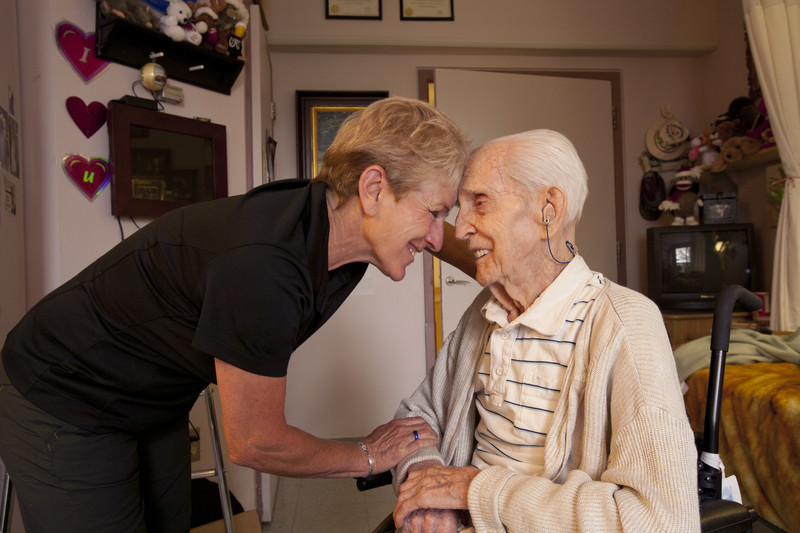Senior Care is a Family Issue
It takes a family working together to choose the most appropriate option for a loved one’s senior care — to make sure all the senior’s needs and wishes are addressed.
Why Is It Important?
For starters, seniors are at a vulnerable stage of life. They often face multiple health concerns and loss of physical and cognitive function. More than ever, seniors need the support and love of family members.
Seniors often have difficulty expressing their needs, desires and preferences, so they need someone to advocate for them. And who is more qualified for that than the people who know them better than anyone else in the world?
Even if your family chooses to involve outside help in providing your loved one’s care – an in-home care agency like Comfort Keepers, a retirement home, or a long term care facility – you need to be involved.
You can communicate to the professional caregivers your loved one’s likes and dislikes, habits, routines, concerns and all the other things that make them the individual they are. Without your help and involvement, their care may fall short of what they deserve.
Today, 80 percent of older Canadians prefer to stay at home as they age. This means families are more directly involved than ever in their loved ones’ senior care. So, it is more important than ever for families to be involved in the planning stage together. No single individual can adequately handle the responsibilities of caregiving alone. Certainly not on top of responsibilities at work and with their own families and community involvement.
In most families, there is usually one sibling who, based on proximity to the aging parent, becomes the chief caregiver. Deciding who that person will be is a good topic for the first conversation with aging parents. Parents, of course, need to be involved in every step of the decision-making process, so they can maintain as much control of their lives as possible.
But no matter who is the chief caregiver, all siblings need to share in the responsibility in some way. This could involve home maintenance, managing bill paying and finances, or taking care of insurance and medical claim issues.
Also, do not forget the importance of frequent visitation. As you brighten your parents’ day, you can monitor their health and mental status and share concerns you have with their professional caregiver. You may find that their elder care plan needs to be modified to address changing circumstances.
What Should I Consider?
In choosing the most appropriate care for a senior loved one, there are a number of decisions to make and questions to ask:
- How do I begin talking with my parent about their care needs?
- How will the care be funded?
- What is the safest, most comfortable, most appropriate care option available for my parent?
- Is a family member nearby who can be of assistance at a moment’s notice?
- What types of help does my parent need – for instance, bathing, eating, transportation, medication reminders?
- How do my parent’s religious affiliation and other personal preferences influence the type of care we choose?
- What types of senior care are available? How do they differ? And how does each one address my parents’ needs?
To help find the senior care solution most appropriate for your parents, you may consider having their physician conduct an evaluation.
You may also consider options that match your parent’s unique traits and temperament. For instance, is your parent typically a thinker or a socializer? Thinkers desire space and privacy and prefer independence, reading, and working quietly alone. On the other hand, socializers are energized by people. They enjoy interactions with others and act lonely without regular interaction.
Also consider your parents past living experiences. Are they accustomed to owning a home where they have acquired many valued items? If so, they may find it difficult to leave. Or, are they accustomed to an apartment or condo? This setting may make it easier to adjust to smaller living areas with others nearby.
Choosing the best senior care option is a difficult decision. Involving family members helps ensure that you consider all factors and choose the best possible solution for your loved one.
Individualized Home Care Options
Long-Term Home Care, 24 Hour Home Care & Short Term Care Options Customized for You







